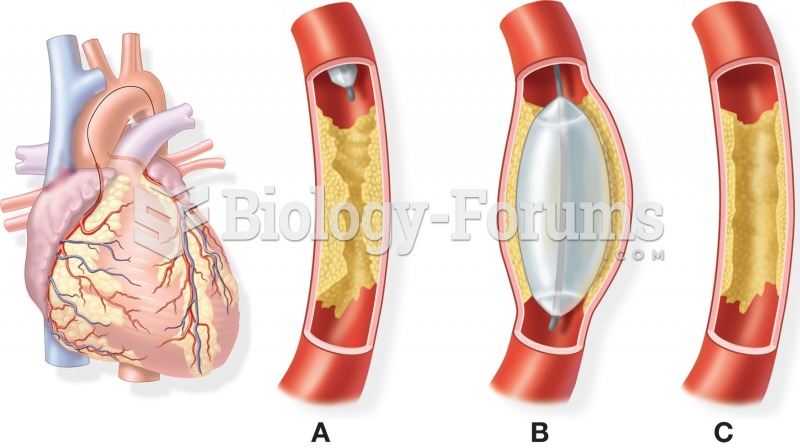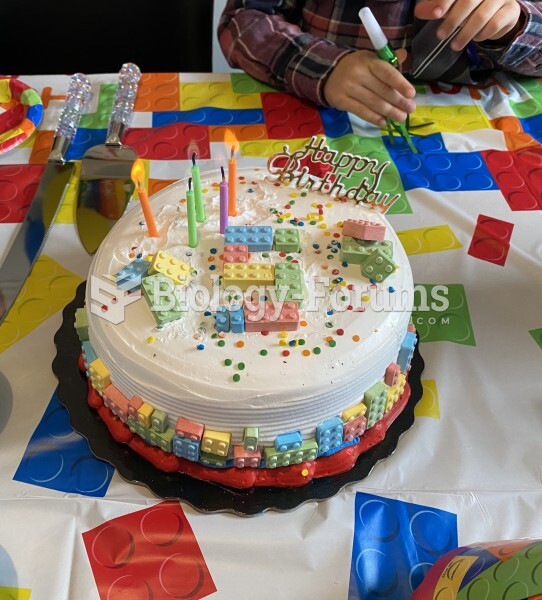This topic contains a solution. Click here to go to the answer
|
|
|
Did you know?
Pubic lice (crabs) are usually spread through sexual contact. You cannot catch them by using a public toilet.
Did you know?
Urine turns bright yellow if larger than normal amounts of certain substances are consumed; one of these substances is asparagus.
Did you know?
This year, an estimated 1.4 million Americans will have a new or recurrent heart attack.
Did you know?
To maintain good kidney function, you should drink at least 3 quarts of water daily. Water dilutes urine and helps prevent concentrations of salts and minerals that can lead to kidney stone formation. Chronic dehydration is a major contributor to the development of kidney stones.
Did you know?
It is difficult to obtain enough calcium without consuming milk or other dairy foods.
 Balloon angioplasty: (A) deflated balloon catheter is approaching an atherosclerotic plaque; (B) pla
Balloon angioplasty: (A) deflated balloon catheter is approaching an atherosclerotic plaque; (B) pla
 Percutaneous ultrasonic lithotripsy. A nephroscope is inserted into the renal pelvis, and ultrasound
Percutaneous ultrasonic lithotripsy. A nephroscope is inserted into the renal pelvis, and ultrasound





